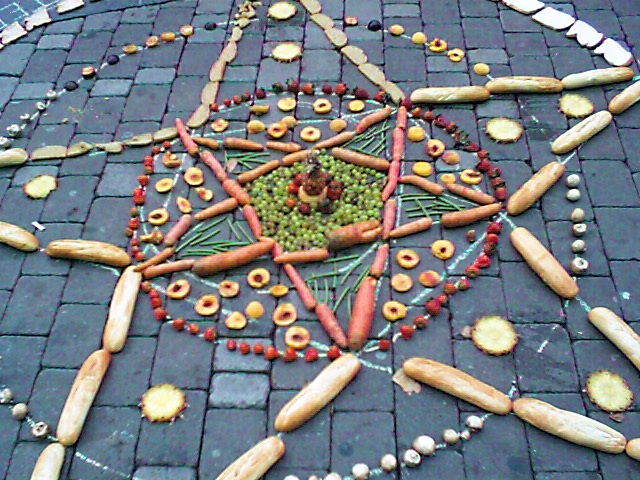
January 19, 2016; NPR, “The Salt”
In 2015, NPQ covered the issue of food deserts and the progress made in widening access to healthy food. This year, 2016, promises to be pivotal for the food waste reduction movement. In the United States, food waste is estimated at between 30-40 percent of the food supply. This wastage diverts resources from uses more beneficial to society. Reducing food wastage would ease the burden on resources as the world attempts to meet future demand.
The scale of this challenge requires alliances and collaborations at government, industry, and consumer levels. In response, the Environmental Protection Agency on Monday launched the Food Steward’s Pledge, an initiative to engage religious groups of all faiths to help redirect the food that ends up in landfills to hungry mouths.
According to NPR, the EPA says groups can also work with local grocers, schools, and restaurants to direct food that would otherwise be wasted to food banks and shelters. They can hold seminars for the faithful and the broader local community to teach them how to plan menus and “shop their own refrigerators first” to avoid buying excess food, and how to compost the leftover scraps. EPA has developed custom resources for faith-based groups with lots more suggestions for groups that sign its Food Steward’s Pledge.
Sign up for our free newsletters
Subscribe to NPQ's newsletters to have our top stories delivered directly to your inbox.
By signing up, you agree to our privacy policy and terms of use, and to receive messages from NPQ and our partners.
NPR reported that EPA Assistant Administrator Mathy Stanislaus recognizes the importance of changing consumer behavior, and faith-based groups can help make that happen in a variety of ways. For instance, when these organizations hold potlucks, the leftovers can go to the local food bank.
“Getting out the message—in particular, what individual families can do…local community leaders are critical in doing that,” Stanislaus told NPR. And because faith-based leaders are often trusted advisers in their communities, “we thought they were a natural ally.”
A wide range of faith-based groups already participate in food waste reduction initiatives. The NPR article featured a range of projects, including:
- Evangelical Environmental Network, a policy and advocacy group which teaches churches how to minimize food waste through actions like donating to food banks, planting community gardens and composting.
- Creation Justice Ministries, an environmental justice group with 100,000 congregations in their network, representing 45 million people, has a variety of programs to address food waste.
- Hazon, a Jewish environmental organization with several programs focused on food and sustainability.
- Green Muslims, a source in the Muslim community for spiritually-inspired environmental education. For instance, the group offers a guide to hosting a zero-waste iftar.
- White Pony Express, a program that rescues food from farms and farmers’ markets, grocers, restaurants and caterers. It was founded by the leader of Sufism Reoriented, an American spiritual order.
It will be valuable to assess the impact that collaboration with religious groups can have on changing consumer behavior. In the U.S., most people think they are doing better than the average person when it comes to not wasting food, highlighting that perceptions aren’t meeting reality, according to a 2015 Johns Hopkins Center for a Livable Future study on consumer attitudes towards food waste.
Nonprofits interested in community engagement techniques would do well to monitor developments in the food waste sector, tipped to grow rapidly in 2016. Infrastructure initiatives for food waste reduction include the transportation of food and composting services, which may require startup investments. In addition to behavior change, engaging with religious groups and other membership organisations could create new networks of investors for new activities. NPQ reported on the power and promise of networked approaches to social change, and we’d love to hear your experiences of collaborations to reduce food waste in the comments below.—James Araci













